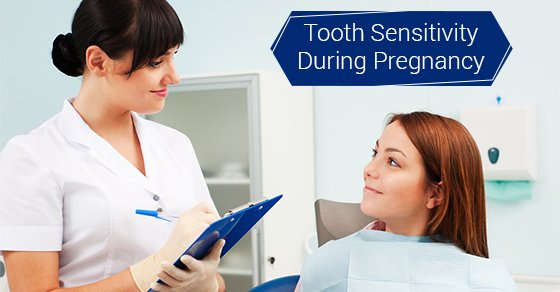Why Is Tooth Sensitivity Worse During Pregnancy? Relief Tips

The journey of pregnancy is filled with numerous physical and emotional changes, impacting nearly every aspect of a woman’s health, including her oral health. One common issue many pregnant women face is tooth sensitivity, which can be particularly bothersome due to the heightened sense of awareness and sensitivity that often accompanies pregnancy. Understanding why tooth sensitivity worsens during pregnancy and exploring relief tips can help manage this issue and promote better oral health throughout this critical period.
Physiological Changes During Pregnancy
Pregnancy triggers a cascade of physiological changes in the body, many of which can affect oral health. One of the key changes is the increase in hormone levels, particularly estrogen and progesterone. These hormonal fluctuations can affect the gums and teeth, making them more susceptible to sensitivity. Estrogen, for example, can cause changes in the blood vessels, leading to increased blood flow to the gums, which may make them more sensitive and prone to inflammation.
Another significant factor is the loosening of the ligaments and soft tissues throughout the body, a result of the hormone relaxin. While this helps with childbirth, it can also affect the support structures around the teeth, potentially leading to minor movements and increased sensitivity.
Dietary Factors and Hygiene
During pregnancy, women may experience food cravings and aversions that can lead to changes in their diet. Consuming more acidic or sugary foods and beverages can erode tooth enamel, exposing the dentin and leading to sensitivity. Furthermore, the desires for specific textures or tastes might result in neglecting dental hygiene or adopting less efficient brushing and flossing techniques, exacerbating existing sensitivity issues.
Gastrointestinal Changes
Pregnancy-induced morning sickness and acid reflux can expose the teeth to stomach acid, further eroding the enamel and increasing sensitivity. This frequent exposure to acid can weaken the teeth over time, making them more sensitive to temperature changes, sweetness, and pressure.
Relief Tips for Tooth Sensitivity During Pregnancy
Managing tooth sensitivity during pregnancy requires a multifaceted approach that includes good oral hygiene practices, dietary adjustments, and professional dental care.
Maintain Good Oral Hygiene: Regular brushing with a fluoride toothpaste and flossing can help prevent plaque buildup and reduce sensitivity. Use a soft-bristled toothbrush and consider a toothpaste specifically designed for sensitive teeth.
Dietary Adjustments: Limit acidic foods and beverages. When consuming them, use a straw to minimize contact with the teeth and rinse your mouth with water afterward.
Desensitizing Toothpaste: Switch to a toothpaste designed for sensitive teeth. These toothpastes contain ingredients like potassium nitrate that help block the dentin tubules, reducing sensitivity.
Regular Dental Check-Ups: Pregnant women should continue their regular dental check-ups. Dentists can offer professional cleaning, provide personalized advice, and treat any issues before they become severe.
Fluoride Varnish: Applying a fluoride varnish can help strengthen tooth enamel and reduce sensitivity. This is a safe and recommended practice during pregnancy.
Avoid Triggering Foods and Drinks: Identify and avoid foods and drinks that trigger sensitivity. Keeping a food diary can help in pinpointing these items.
Chew Sugar-Free Gum: Chewing sugar-free gum after meals can stimulate saliva production, which helps neutralize acids and remineralize teeth.
Conclusion
Tooth sensitivity during pregnancy can be a challenge, but it’s not an unavoidable part of the journey. By understanding the underlying causes and implementing the right relief strategies, women can manage and reduce their tooth sensitivity. It’s crucial to prioritize oral health, not just for the sake of comfort, but also to ensure the overall well-being of both mother and baby. Regular dental care, informed dietary choices, and the use of desensitizing products can make a significant difference in managing tooth sensitivity and promoting a healthy, comfortable pregnancy.
Can pregnancy hormones directly cause tooth sensitivity?
+While pregnancy hormones don’t directly cause tooth sensitivity, they can lead to changes in the gums and teeth that increase the risk of sensitivity. For example, hormonal fluctuations can cause the gums to become more inflamed and sensitive, potentially exposing the roots of the teeth and leading to sensitivity.
How often should I visit the dentist during pregnancy?
+It’s recommended to continue regular dental check-ups during pregnancy. In fact, the American Dental Association and the American College of Obstetricians and Gynecologists recommend that pregnant women schedule a dental visit during the second trimester, or as needed. This allows for any necessary treatments to be performed safely and helps in preventing and managing oral health issues, including tooth sensitivity.
Are there any home remedies for tooth sensitivity during pregnancy?
+Yes, there are several home remedies that can help with tooth sensitivity during pregnancy. Desensitizing toothpaste, saltwater rinses, and avoiding extreme temperatures can provide relief. Additionally, maintaining good oral hygiene and avoiding foods that trigger sensitivity can help manage the condition. However, it’s always best to consult with a healthcare provider or dentist before trying any new home remedies, especially during pregnancy.
